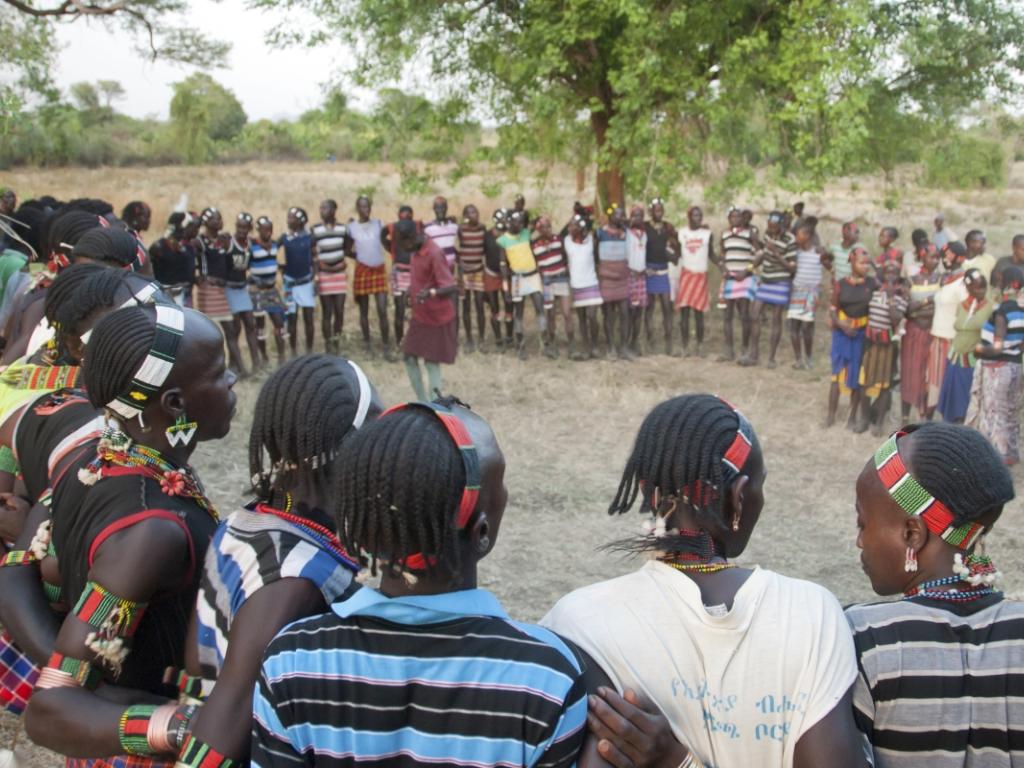Communities have their say at the 8th Alternative Mining Indaba hosted in Cape Town

The 8th Alternative Mining Indaba took place on 6-8 February 2017 in Woodstock, Cape Town. Only 50 delegates attended the first Alternative Mining Indaba hosted in 2010, but 7 years later more than 450 delegates from Africa, North and South America, Asia, Europe and Australia participated. The Alternative Mining Indaba runs in parallel with the main Mining Indaba, which caters for specific stakeholders in the mining industry such as investors, mining professionals, government officials, financiers, and mining service providers. By providing a platform for mine communities and civil society organisations, the Alternative Mining Indaba creates an opportunity for mining communities to share their experiences, discuss the issues affecting them and to look for ways in which to address these issues.
This year’s theme was “Making Natural Resources Work for the People: Domestication of the African Mining Vision (AMV): From Vision to Reality”. The AMV was adopted at an AU summit in 2009 by African Heads of States with the objective to ensure “transparent, equitable and optimal exploitation of mineral resources to underpin broad-based sustainable growth and socio-economic development”. The AMV is not a mining regulatory regime, but rather a high-level policy document and development plan that promotes the mining sector as a catalyst for economic growth in Africa. The African Mineral Governance Monitoring Framework (AMGF), which is still in the drafting stages, will be used to monitor the implementation of the AMV. The AMV and AMGF are regarded as efforts to decolonise the extractives industry, but also to address current day exploitative practices of multinational corporations, plundering African countries for their mineral resources.
During the three-day Alternative Mining Indaba, issues such as different fiscal regimes and revenue management, environmental and other social issues and experiences were addressed and shared. The event commenced with the keynote address of Nonhle Mbuthuma-Furslund from the Amadiba Crisis Committee in Xolobeni, Eastern Cape. The Amadiba Crisis Committee was formed in 2007 by residents of Xolobeni in Pondoland in opposition to the development of the Xolobeni titanium mine. Development of the mine is contested because of its harmful effects on the ecologically sensitive coastline. Mining on the land also means communities will be unable to use the land for customary and spiritual practices or rituals. Mbuthuma-Furslund reminded attendees of the Pondoland revolt in the late 1950s and early 1960s, which revolt was triggered by the creation of tribal authorities by the Apartheid government in terms of the Bantu Authorities Act of 1951. Chiefs obtained power to deal with land to the detriment of the people they were meant to serve. Land is an important part of the community’s identity. Mbuthuma-Furslund therefore argues that her community now has a duty to preserve the land from the effects of mining activities for the next generation, in the same way it was preserved for her generation during the Pondoland revolt.
The devastation caused by the Marikana Massacre that occurred on the 16th of August 2012, was also remembered. Thumeka Magwangqana, a member of the Marikana women’s organisation, Sikhala Sonke (“we cry together”), shared her experiences of the event and its aftermath. The massacre left 34 mineworkers dead and 78 wounded.
Mine community members also expressed apprehension about the contents of the AMV; in particular, whether the AMV would allow communities to choose not to have mining activities take place in the areas where they reside. WoMin, an organisation promoting the rights of women in mining, commented on the AMV from an eco-feminist perspective. They argue that the AMV does not take into account the effects of mining development on women, in particular, rural women. Since a significant proportion of rural women are engaged in agricultural production, they will be hardest hit by the pollution from mines and, ultimately, climate change that occurs because of extraction. Furthermore, WoMin highlights the fact that the AMV does not address the gendered division of labour or working conditions.
The outcome of the various discussions was taken up in the 2017 Alternative Mining Indaba Declaration, which was handed over to the Managing Director of the main Mining Indaba on 8 February.
The growth of the Alternative Mining Indaba is a reflection of the increased need for community members to voice their concerns over mining activities in their areas. Since communities were able to voice their concerns, the Indaba can be considered a success in that respect. It was clear during certain presentations, however, that not everyone was well informed of the contents of the AMV and AMGF. During the presentation on the AMGF, community members were hesitant to contribute because of a lack of knowledge about the AMV and AMGF – this despite the fact that there had been community engagement according to the drafters of the AMGF.
One challenge the Indaba, therefore, will have to overcome as it continues to grow is to ensure that community members are actively involved at every stage of policy and other developments affecting communities. In the instance of the AMV, it could be argued that engaging with communities on the contents of the AMV and AMGF is the responsibility of the African Mineral Development Centre, which was established by the AU to assist with the implementation of the AMV. If the Alternative Mining Indaba is serious about providing a useful platform for mining communities, however, it should assist in the facilitation of engagement throughout important policy developments and processes. The Indaba has already established relationships with mining communities across Africa and these relations should be used to disseminate knowledge. Ultimately, it is knowledge that will empower community members. Using a criterion more stringent than measuring participation at this year’s Indaba, the success of the Alternative Mining Indaba will ultimately lie in its ability to coordinate the different movements and civil society organisations as they promote the implementation of the 2017 Declaration.
Written by Vuyisile H Ncube.
